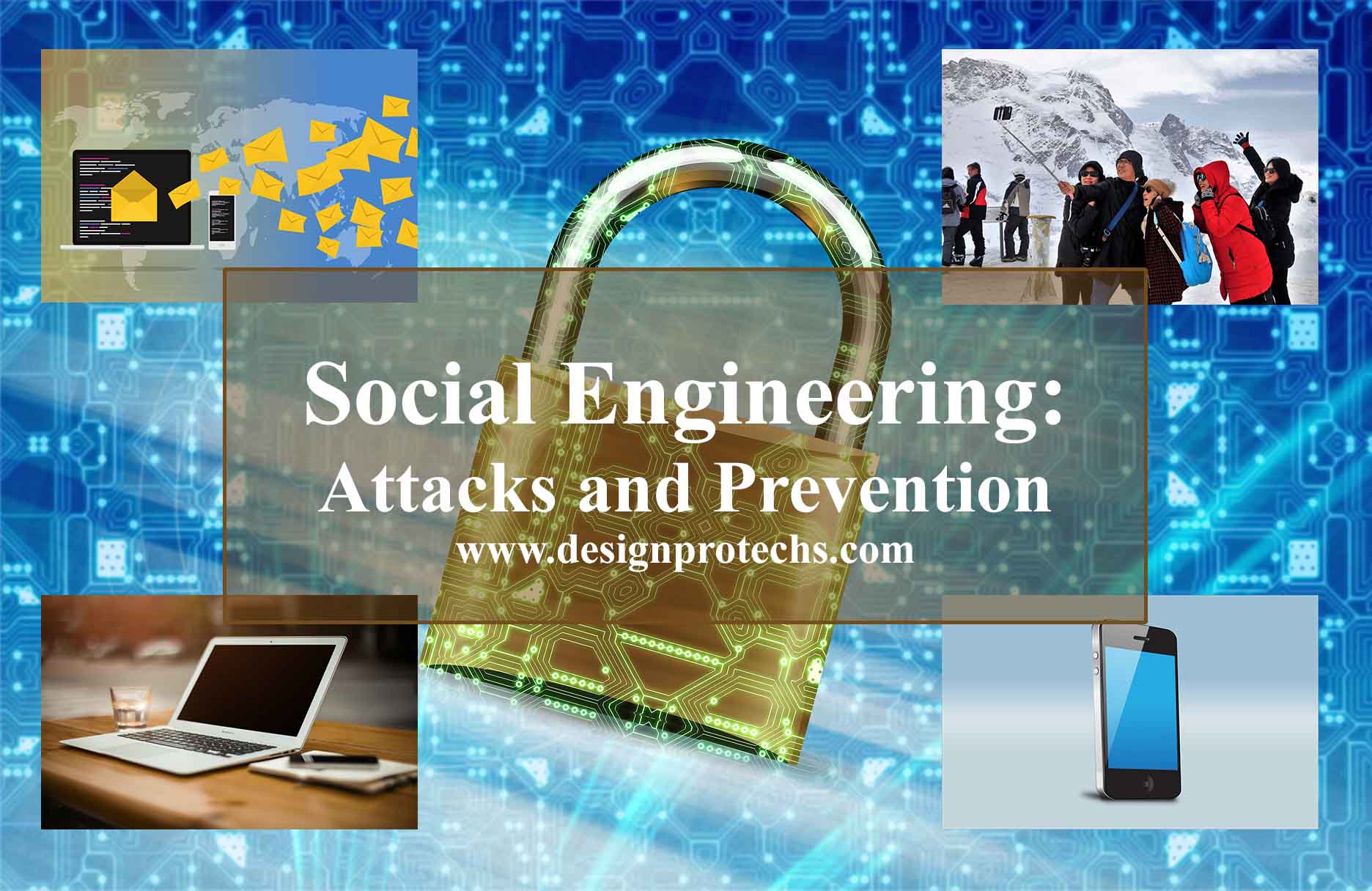Social Engineering is another term that is used in the Information Security domain. It refers to the several activities resulting in frauds that are carried out, through human interactions. In other words, it is another way of manipulation, as a result, people share their confidential information with the source.
Social Engineering
Social engineering is a psychological attack on the human being. Cybercriminals target the individuals in multiple ways. It may be of gaining the password for personal information like bank information details luring with offers of free holidays etc. Or, to gain access to the laptop/mobile or any other electronic device used for the purpose of storing information and communication.
Human Beings – A weak link
Human beings are the weakest links in any type of security breaches. It is because, individuals get easily exploited by natural traits of faith, trust, wellness etc. It is an easy way to fool someone, rather than following the mechanism and programming of hacking. In our day to day life, as soon as, we hear the door-bell and a visitor introduces himself as a courier boy or an e-commerce agency guy or a pizza delivery boy, we immediately open the door trusting his words. We expose ourselves to all kind of risks, at that moment, which may lead to, and, making ourselves vulnerable to the situation. As a result, we tend to fall into the trap of unknown situations. For such reasons, we must have a strong human firewall.
As a human, you should understand the basic principles of security. It says, to understand, about knowing who to trust and what should be trusted. Let us understand, how one should respond, so as to, avoid vulnerability towards social engineering.
How shall individual respond?
No organization or government is responsible for the individual security. Primary responsibility lies with an individual only. Let us proceed with the certain ways to respond, so that, you are not falling prey to social engineering attacks.
- Be suspicious of any phone call or email from an unknown caller or a sender who is trying to fetch out your personal and/or professional details.
- Do not open any attachment or link, if received through an email from the unknown sender. It may contain malware or a malicious code making your device vulnerable.
- Be security aware always. Never allow your devices to fall prey through juice jacking or any other means to cybercriminals.
Methods – Social engineering attacks
Cybercriminals generally follow the methods mentioned below to exploit with social engineering attacks.
- Data collection
- Personal Relationship
- Exploiting Devices
- Implementation
Data collection is a method which cyber criminals use, to collect the information about their targets. It may your footprints in the cyber world. Cybercriminals follow you through your social media presence on the various social platforms or other portals that you use. As soon as, they find a weak link or vulnerable point to exploit, they start hitting their targets.
The personal relationship is another method that cyber criminals follow. It may start with a casual discussion at some public place where they may find your interest areas and become friendly. Individuals, sometimes, develop trust and share their personal information with them. It may also start with a phone call from an unknown number or through email. Friend requests made on social sites is also a way to develop a personal relationship. Such relationships with unknown persons may let individual fall prey to social engineering attacks.
Another method is via exploiting your communication devices, like mobile phone/tablet etc. Cybercriminals target the devices by infecting them with malware or malicious codes. Juice jacking is the example of such exploitation.
After following the data collection, personal information and exploiting the devices, cybercriminals follow the implementation of their plans. Details fetched, through the above-mentioned methods, help cyber criminals investigate and scan your network. Furthermore, it also leads to infect more devices. Most importantly, it makes your information vulnerable, and cybercriminals steal your valuable information.
Conclusion
Again reiterating, stating that no organization or government is responsible for individual security. Primary responsibility lies with individuals only. Let us understand the security and create a strong human firewall.
Stay safe!
Your comments are much appreciated. Feel free to get in touch with us. We are also available on Twitter, You can tweet us @designprotechs







Vaibhav says:
Taranjeet Kaur says:
FESTUS EDEAWE says: